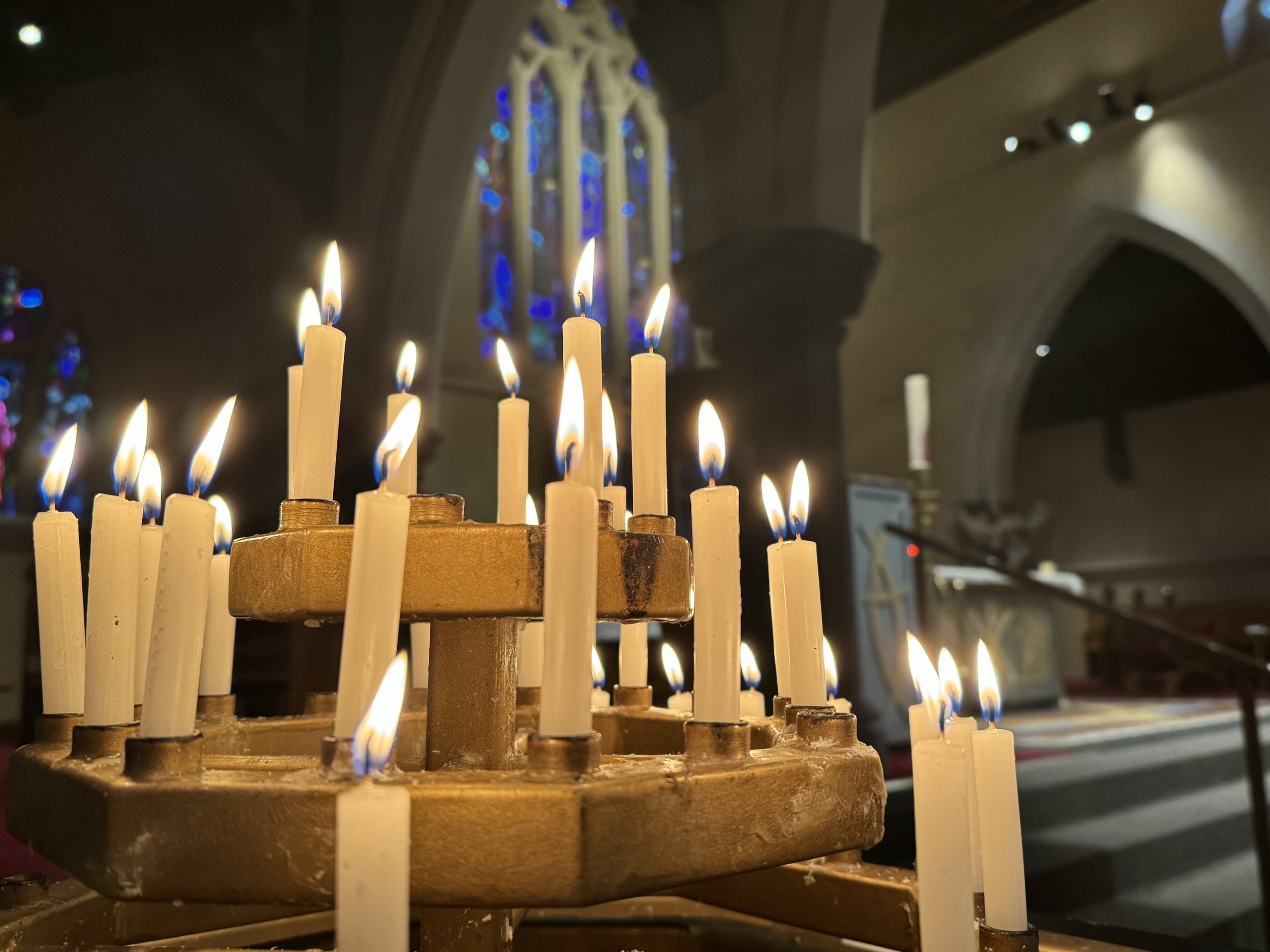Funerals
At a Catholic Funeral, family, friends, and the faith community gather to farewell the person who has died and entrust that person to God’s loving care. The funeral rites of the Catholic Church- the vigil, funeral liturgy and rite of committal provide opportunity for us to pray for our departed loved ones, offer support for us who mourn and provide comfort to those in grief where ordinary words may fail.
The Funeral Rites
Vigil for the Deceased (Optional)
On an evening before the funeral, usually the night before, family and friends may come together for a vigil. Options for a Vigil Liturgy with readings and prayers are provided in the Order of Christian Funerals. The Vigil may also provide opportunity for a loved one to provide some ‘words of remembrance’ about the one who has died.
Other customs exist for the Vigil such as praying the rosary which is often customary within the Star of the Sea Parish.
A Vigil may be held either in a church or at a funeral parlour.
It may also be possible to arrange for the body of the deceased to be present during the vigil. Options for a Vigil can be discussed with the celebrant of the funeral.
2. Funeral Liturgy
The Funeral Liturgy is the central liturgical celebration and may either take the form of a Requiem Mass with the final commendation, or a Liturgy of the Word followed by prayers and the final commendation. Mass is the greatest prayer of the church and a sign of our communion with Christ and the community of faith. It is the most common form of Catholic funeral.
A funeral service with the Liturgy of the Word and final commendation, omits the Liturgy of the Eucharist and may be more appropriate if many of the attendees may be unfamiliar with the Church’s liturgical rites.
Funeral services can take place either in the church or a funeral parlour.
3. The Rite of Committal
The final funeral rite is the Rite of Committal, which take place either at the cemetery or crematorium chapel. The rite of committal either for burial or cremation usually takes place following the funeral liturgy.

Preparing the Funeral
Contact the Parish
The Funeral Directors are to get in contact with the parish to ascertain whether the requested church, date and time are available.
Meet with the Priest and/or Bereavement Team
Confirm a date and time with the parish office to discuss the funeral rites. The priest and or bereavement team will assist you in selecting the appropriate funeral rites for your deceased loved one.
Select Scripture Readings
The priest and/or bereavement team will also assist you in selecting the scripture readings and prayers of the faithful as well as outline the various roles that need to be undertaken within the funeral liturgy.
Select the Music
You will be asked to decide between live or recorded music.
The parish has a number of options for organists and vocalists which can be arranged with the priest and/or bereavement team.
Every parish church does also have facility for digital music and are equipped with digital equipment to display hymn lyrics on screen.
As the funeral liturgy is an act of prayer it is important that the music facilitates prayerful reflection and is a support for those who mourn.
Music selected in consultation with the priest is to be religious in theme. Examples of appropriate music for Catholic funerals are listed below:
1. Entrance Hymn 2. Offertory Hymn 3. Communion Hymn 4. Recessional Hymn
Abide with me Be Not Afraid On Eagle’s Wings Amazing Grace
Come as You Are Ave Maria Make Me a Channel of Your Peace Galilee Song
Here I am Lord Come Back to Me Hail Mary, Gentle Woman Go Silent Friend
Strong and Constant You are Mine As Gentle as Silence Nearer, my God, to Thee
How Great Thou Art Pie Jesu I am the Bread of Life May the Road Rise to Meet You
Prepare Words of Remembrance and/or an Audio-Visual Reflection (Optional)
Many people find it appropriate to share a reflection on their deceased loved one’s life (a eulogy) as part of the funeral liturgy. Whilst this is permitted at the beginning of the service, it is not a required part of the service.
Other moments such as at the Vigil or the refreshments following the funeral may be more appropriate for personal sharing.
The same understanding also applies to audio-visual reflections, again permitted but not required as a post-communion reflection at Mass or following the general intercessions in the funeral service.
This form of remembrance may be more appropriate at the Vigil or a wake following the service.
Your funeral director may be able to assist in the production of a audio-visual reflection if this is desired.
The priest may request you provide a copy of your words of remembrance to him prior to the funeral service.


